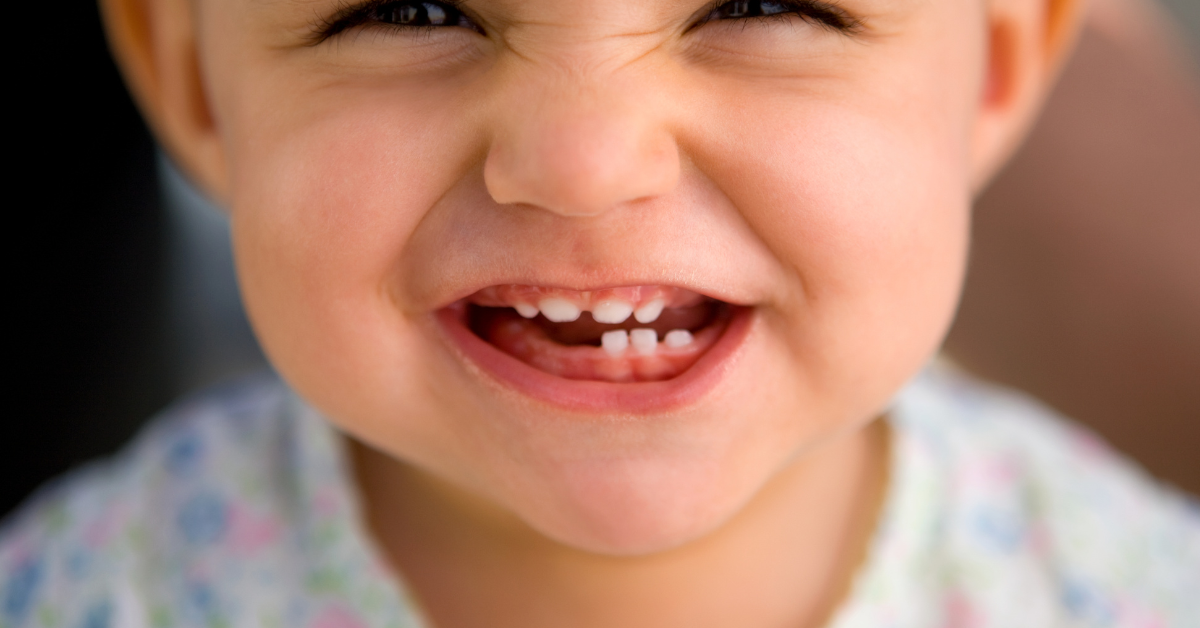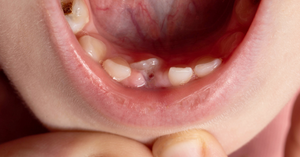Baby teeth, also known as primary teeth, are often overlooked in the grand scheme of dental health. Many parents assume that since these teeth are temporary, they don’t require the same level of care as permanent teeth. However, the importance of baby teeth extends far beyond their temporary nature. In this article, we will explore why baby teeth are vital for your child’s overall dental health, focusing on their roles in speech development, nutrition, and the proper alignment of permanent teeth. Understanding the significance of baby teeth can help ensure your child maintains a healthy and beautiful smile throughout their life.
The Role of Baby Teeth in Speech Development
One of the primary functions of baby teeth is their crucial role in the development of speech. Baby teeth help in the formation of clear and distinct sounds, which are essential for effective communication. The front teeth, in particular, are instrumental in producing sounds like “s,” “f,” and “th.” When these teeth are missing or improperly aligned, it can lead to speech impediments and difficulties in learning proper pronunciation. Early dental care ensures that baby teeth are healthy, thus supporting normal speech development.
Baby teeth importance cannot be overstated when it comes to ensuring that children develop clear and articulate speech. Dental professionals emphasize the need for regular check-ups and proper oral hygiene from a young age to prevent decay and loss of baby teeth. This proactive approach not only promotes better speech but also boosts a child’s confidence and social skills.
Baby Teeth and Nutritional Health
Another significant aspect of baby teeth is their role in nutrition. Healthy baby teeth are necessary for chewing and breaking down food properly, which is crucial for digestion and the absorption of nutrients. When baby teeth are decayed or missing, it can lead to difficulty in chewing, which in turn can result in nutritional deficiencies. For instance, if a child cannot chew vegetables and other fibrous foods properly, they might avoid them, leading to an imbalanced diet.
The importance of baby teeth extends to preventing malnutrition and promoting a balanced diet. Dentists recommend that parents encourage good eating habits and regular dental visits to maintain the health of baby teeth. By doing so, they help ensure that children can enjoy a variety of foods that are essential for their growth and development.
Guiding Permanent Teeth into Place
One of the most critical roles of baby teeth is to act as placeholders for permanent teeth. Baby teeth maintain the space in the jaw for the permanent teeth to grow in correctly. If a baby tooth is lost prematurely due to decay or injury, the surrounding teeth can shift into the empty space, leading to crowding and misalignment of the permanent teeth. This can result in the need for orthodontic treatments later in life, such as braces.
The strategic importance of baby teeth in guiding permanent teeth cannot be overlooked. Dental professionals highlight the necessity of preventive care and timely interventions to preserve baby teeth until they naturally fall out. This approach minimizes the risk of malocclusion and other dental problems that can affect a child’s oral health in the long run.
Preventing Dental Problems
Proper care of baby teeth is essential in preventing a variety of dental problems. Cavities in baby teeth, if left untreated, can lead to infections that affect the development of permanent teeth. Moreover, poor oral hygiene can cause gum disease, which can damage the underlying structures that support the teeth. By teaching children good oral hygiene habits early on, parents can help prevent these issues.
The importance of baby teeth also lies in their role in establishing lifelong dental habits. Regular brushing, flossing, and dental check-ups instill a sense of responsibility and awareness about dental health from a young age. Dental professionals recommend starting dental visits by the age of one or within six months after the first tooth appears. This early intervention helps in identifying and addressing any dental issues promptly.
The Psychological Impact of Healthy Baby Teeth
Healthy baby teeth contribute significantly to a child’s self-esteem and social interactions. Children with decayed or missing teeth may feel self-conscious about their appearance, which can affect their confidence and willingness to smile or engage in social activities. Ensuring that baby teeth are healthy can help children feel more confident and happy, positively impacting their social and emotional development.
The importance of baby teeth in fostering positive self-esteem cannot be ignored. Dental professionals stress the need for creating a supportive environment where children are encouraged to take pride in their oral hygiene. Parents play a crucial role in this by modeling good dental habits and making dental care a positive experience.
The Impact of Early Dental Visits
Early dental visits are fundamental in maintaining the health of baby teeth. These visits allow dentists to monitor the development of the teeth and gums, provide professional cleaning, and offer guidance on proper oral hygiene practices. They also help in identifying any potential issues early on, such as teething problems, thumb-sucking habits, or the need for fluoride treatments.
The importance of baby teeth is further highlighted by the preventive measures taken during these early dental visits. Dentists can apply sealants to protect the teeth from decay and provide parents with valuable advice on diet and oral care routines. By establishing a relationship with a dentist early on, children are more likely to view dental visits as a positive and routine part of their healthcare.
Parental Involvement and Education
Parents play a pivotal role in the care of their child’s baby teeth. Educating parents about the importance of baby teeth and how to care for them is crucial. This includes guidance on brushing techniques, the use of fluoride toothpaste, the importance of a balanced diet, and the avoidance of sugary snacks and drinks. Parental involvement ensures that children adopt healthy dental habits that last a lifetime.
The importance of baby teeth is reinforced through parental education and active participation in their child’s dental care. Dental professionals recommend that parents supervise their child’s brushing until they are capable of doing it effectively on their own, usually around the age of seven or eight. This hands-on approach helps in ensuring that baby teeth remain healthy and free from cavities.
Conclusion
In conclusion, the importance of baby teeth extends far beyond their temporary presence in a child’s mouth. They play a critical role in speech development, nutrition, and the proper alignment of permanent teeth. Healthy baby teeth contribute to a child’s overall well-being, including their self-esteem and social interactions. By understanding and prioritizing the care of baby teeth, parents can help lay the foundation for their child’s lifelong dental health.
Regular dental visits, proper oral hygiene practices, and a balanced diet are essential in maintaining the health of baby teeth. Dental professionals emphasize the need for early intervention and parental involvement in fostering good dental habits. The importance of baby teeth is a fundamental concept that should be embraced by all parents and caregivers to ensure that children grow up with healthy, beautiful smiles.
By appreciating the significance of baby teeth and taking proactive steps to care for them, we can help our children develop strong, healthy permanent teeth and a positive attitude towards dental health. The impact of healthy baby teeth is profound and far-reaching, influencing a child’s overall health and quality of life.








